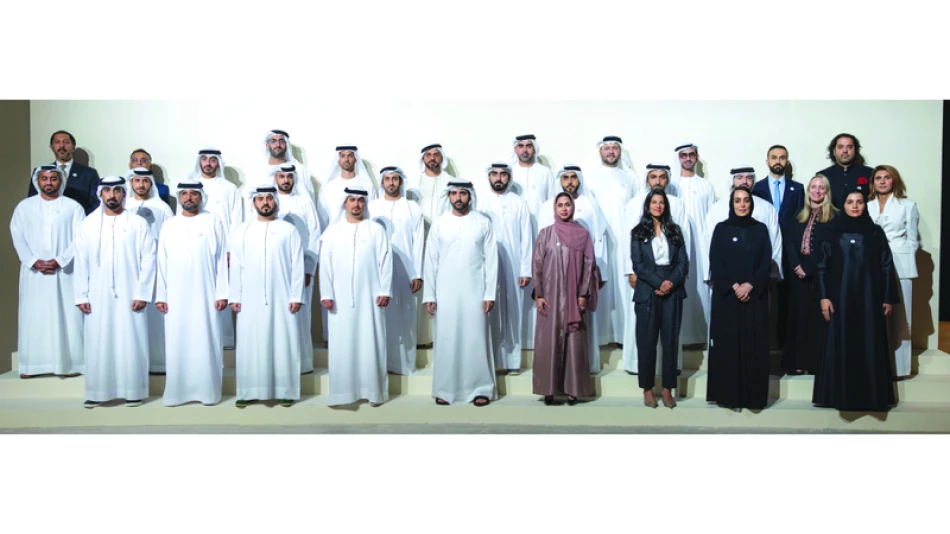
Dubai's Economy Continues to Set Global Benchmarks for Entrepreneurship and Excellence
Dubai's Crown Prince Sheikh Hamdan bin Mohammed bin Rashid Al Maktoum witnessed the graduation of the second cohort from Dubai's Family Business Management Program, marking another step in the emirate's efforts to strengthen one of its most important economic pillars. Family businesses make up 90% of all private companies in the UAE and contribute 40% to the country's GDP while employing over 70% of the private sector workforce.
The program, launched in October 2023 by Sheikh Maktoum bin Mohammed bin Rashid Al Maktoum, aims to ensure continuity of family businesses through succession planning and governance improvements. It operates under Dubai Chambers in partnership with the Mohammed bin Rashid Centre for Leadership Development.
The graduation took place during the annual Mohammed bin Rashid Leadership Forum, which brought together 1,000 senior leaders from Dubai's public and private sectors. The event focused on future administrative and leadership transformation to cement Dubai's position as the world's best city.
"We see family businesses as an important pillar in the emirate's economy, and their continuity and development represents a key driver of comprehensive development," Sheikh Hamdan said during the ceremony. He emphasized that Dubai's economy continues to deliver global models of excellence through sustainability and investment in future opportunities.
The program specifically targets second-tier leaders in family businesses, preparing them for eventual succession. This focus addresses a critical challenge many family enterprises face worldwide - the transition between generations. Studies show that only about 30% of family businesses survive to the second generation, making such training programs economically significant.
Participants received training from professors at the International Institute for Management Development through virtual sessions and personal mentoring. The curriculum covered leadership skills, governance best practices, and Dubai's economic priorities, particularly the D33 Economic Agenda that aims to double Dubai's economy by 2033.
The program also created networking opportunities between family businesses and government institutions to foster public-private partnerships. Participants worked on development projects for their own companies while learning from case studies and field visits with established family business leaders from around the world.
For investors and business stakeholders, this initiative signals Dubai's commitment to maintaining its competitive edge through human capital development. Family businesses often provide more stable employment and have deeper community ties compared to multinational corporations, making their success crucial for long-term economic stability.
The training emphasized emotional intelligence in leadership and strategic storytelling to help future leaders communicate their vision effectively to family members and employees. Participants also learned to leverage the strategic advantages that family businesses typically possess, such as long-term thinking and strong company culture.
This program reflects broader regional trends where Gulf states are investing heavily in business continuity and economic diversification. As these economies move away from oil dependence, the success of local family enterprises becomes increasingly important for sustainable growth and job creation.
Most Viewed News

 Sara Khaled
Sara Khaled






